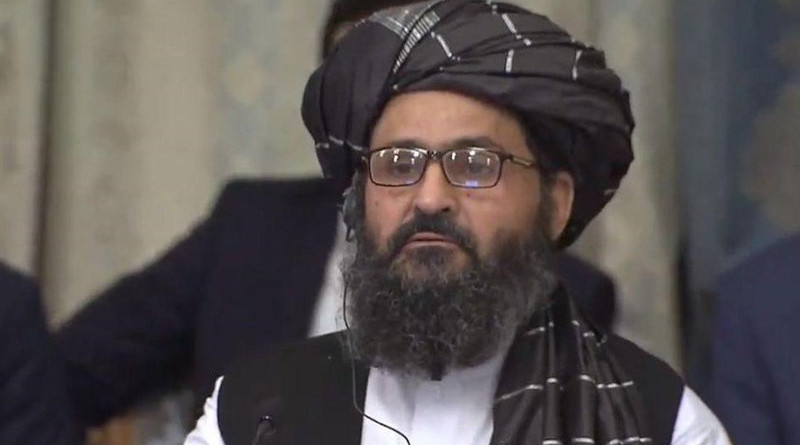Afghanistan Abandonment By US To Taliban Will Be Geopolitical Suicide – OpEd
By Dr. Subhash Kapila and SAAG
By Dr Subhash Kapila
“Geopolitical Suicide” would be the end-result of United States withdrawal of US Military Forces from Afghanistan by May01 2021, robbing United States of an irreplaceable vital “Strategic Perch’ which empowers United States to extend power and influence in turbulent Greater South West Asia expanse.
The United Sates unilateral implementation of its ill-conceived and ill-advised Doha Accord with the Afghan Taliban—- much hated within Afghanistan for its medieval Islamist brutalisation of the Afghan people—-without matching cessation of Afghan Taliban terrorism & suicide bombings as pledged to United Sates at Doha is suicidal for US National Security interests.
The United States as a Superpower cannot be globally seen and perceived ‘Supping with the Devils’ with Islamist Terrorist outfits like the Afghan Taliban. This spectacle is demeaning for United States global image besides spinning on its head the very rationale in the first place of US military intervention in 2001 to displace the Afghan Taliban regime installed in Kabul courtesy Pakistan Army.
‘Geopolitical Suicide” it will surely be for the United States as withdrawal of US Military Forces by May01 2021 would generate in its wake three major adversarial factors impacting US National Security interests as follows: (1) United States wilfully generating a ‘Strategic Void’ in Afghanistan to be exploited by US geopolitical adversaries (2) United States unceremoniously gambling away its ‘Strategic Perch’ to its confirmed geopolitical adversaries (3) United States would be risking a ‘Third Military Intervention’ at much greater cost to undo the Civil War hat Afghan Taliban would inflict on Afghanistan following US military exit.
The ‘Strategic Void’ in Afghanistan wilfully generated by United States honouring Doha Accord will be exploited by China and Pakistan with Russia in tow. China and Russia figure on top of US threat perceptions as Sates adversarial to US primacy and intent on undermining US influence globally and regionally. Pakistan today is China’s ‘Front Line State’ and not that of the United States.
Strategic convergences of China, Pakistan and Russia are markedly visible currently to prompt United States towards a military exit from Afghanistan. Can the United States in the prevailing geopolitical turbulence afford to consign the Kabul Government as a prey to the geopolitical and strategic machinations of confirmed US adversaries?
Afghanistan with sizeable US military presence embedded offers a valuable ‘Strategic Perch’ for United States for surveillance and possible military intervention if warranted o any adversarial developments to US National Security interests in Greater South West Asia. No alternatives to Afghanistan are alternatively available to United States.
This facet of Afghanistan’s strategic utility needs to be seriously considered by United States strictly in the context of checkmating the China Threat. China has a small sliver of border-sharing in the Wakhan Corridor area. Afghanistan also strategically rests on China’s western periphery of the vulnerable and turbulent Xingjian Region. Are US policy planners in Washington blind to the great strategic potential that Afghanistan offers to United States as a major strategic pressure point against China?
The above mandates a permanent US Forward Military Presence of about 20,000 troops on the lines of FMP in Japan and South Korea as argued by me in my writings for over a decade.
The United States wilfully attempting to include Afghan Taliban in a Provisional Government in Afghanistan as being advocated by present US Secretary of State Blinken following a Boon-type Meet inherently sows the seeds of yet another Civil War in Afghanistan which any discernible policy analyst can foresee.
The Civil War in the 1990s in Afghanistan was generated by Pakistan Army foisting the Afghan Taliban medieval Islamist regime in Kabul by military means due to the US strategic obliviousness.
The next Civil War following US military exit honouring Doha Accord will be generated by United States wilfully foisting the much hated Afghan Taliban in the Provisional Government envisaged by Washington planners.
What the Afghan Taliban could not achieve victoriously on the battlefield by defeating US Military Forces in Afghanistan is now being handed over by Washington planners on a silver platter to Afghan Taliban.
Ironically it is the Washington policy establishment that seems to be providing a ‘Back Door Entry’ to the much despised Afghan Taliban in the future governance of Afghanistan. The end-result will be a Civil War.
Any third military intervention in Afghanistan to reclaim Afghanistan for United Sates vital interest would be far more costly than the costs of a US Forward Military Presence embedment.
Concluding Observations
Afghanistan has overwhelming geopolitical and strategic utility for United States continuance as a Superpower now being contested openly by China with its heady military muscle.
Afghanistan is in the crosshairs of China, Pakistan and Russia as the next target of prompting a ‘Saigon Unceremonious Exit’ of US power and influence in the region. Short of military means this is a no-cost bargain basement option for these adversarial nations of United States to demean United States
Civil War is a surety if the United States wilfully or permissively facilitates Afghan Taliban’s inclusion in Provisional Government of Afghanistan.
Would the United States consciously adopt a “Geopolitical Suicide” option in pursuance of temporary political expediencies?


U.S. is posturing to get Indians to buy in! Please step in where US is abandoning and save the day like good allies. India can announce her arrival on the big power scene with stepping into a regional void – instead of criticizing US do something.